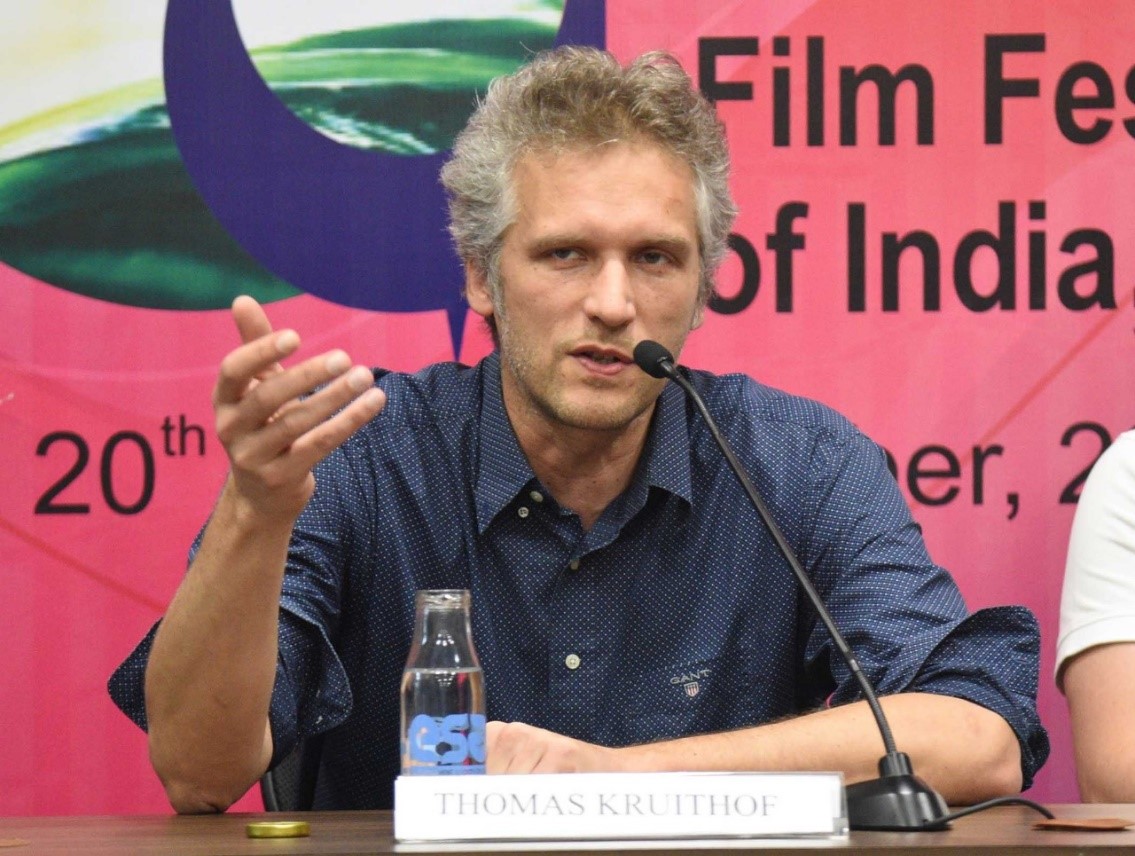Panaji, 24 November 2021
A political drama of a lady in power, who is confronted with the moral quandaries involving the seemingly dichotomous demands of her aspiration for power on the one hand and the inner urge to stay true to the needs of her citizens on the other. Do watch the French movie Promises or Les Promesses by Director Thomas Kruithof, to immerse yourself in the complex interplay of power and character, a phenomenon which pervades much of life. The film has had its Indian Premiere in the World Panorama section of the 52nd edition of the International Film Festival of India, being held in Goa in a hybrid mode, during November 20 – 28, 2021.
Addressing a press conference on the sidelines of the festival today, November 24, 2021, Kruithof told film delegates: “I wanted to write a film about a whole political set-up with the position of Mayor in the center. This movie is about what you do after you get the power; how you fulfill your promises or how you change the lives of people in your town, that’s the core conflict; the goal of this film is to bring this out.”
This film is not about corruption although it is a recurring theme in political films. Rather, it is a portrayal of the difficult choices between one’s ego and one’s ethics. Kruithof commented on what inspired him to make the film: “I wanted to make a movie about politics but not about conquering of power. It is more on what you do when you get the power and how you manage to try and change the lives of your citizens”.

The Director explained the fundamental questions the film raises. “The protagonist Clémence, played by French actress Isabelle Huppert, is shown as the fearless mayor of a town near Paris. A mayor who knows her citizens and their problems, she is completing the final term of her political career. However, when she is approached to become the Minister, her ambition rises and she faces a dilemma at the hands of power. The film questions if she can find a way to survive in a highly ambitious world despite having political integrity and sincerity to her citizens.”
The protagonist has always fought poverty and unemployment. However, when the prospect of power arises, she is caught within her own desires; though otherwise honest, she changes her demeanor. “She desires power, at the same time, she is afraid to lose her integrity. She comes off as calm outside but inside, she is devoid of it. A woman in politics is never at rest.”

The film says a lot about political courage, commitment, ambition and flaws of character. The protagonist goes through a conflict between her personal interests and social interests, but in the end she opts for society’s interest. On this, the Director has this to say: “Even if like Clémence, you are a well-intentioned politician, at some point, the idea of quitting and the emptiness that awaits you when you quit is something one can relate to. I wanted to find a balance between conflict and chaos within her character.”
Having made another film before, Kruithof said he was fascinated by the elections in his country. That is when he decided to make his second film on politics.
Sharing his view about having a woman at the centre of the film, the director said that when a woman rises in politics, she always faces resistance; so it’s all about how she tackles all the issues around her and within her.
How did the film find its name? Kruithof asserts the all-pervasive presence of promises: “The Name Promises came naturally to me as promises in politics are like a currency, every conversation is a promise, that’s the way you get someone’s vote. The movie shows day-to-day politics; so the characters speak less about ideology, and more about money, positions and hierarchy.”
* * *
TEAM IFFI PIB | DJM/HD/DR/IFFI-71
Follow us on social media: ![]() @PIBMumbai
@PIBMumbai  /PIBMumbai
/PIBMumbai ![]() /pibmumbai
/pibmumbai  pibmumbai@gmail.com
pibmumbai@gmail.com



